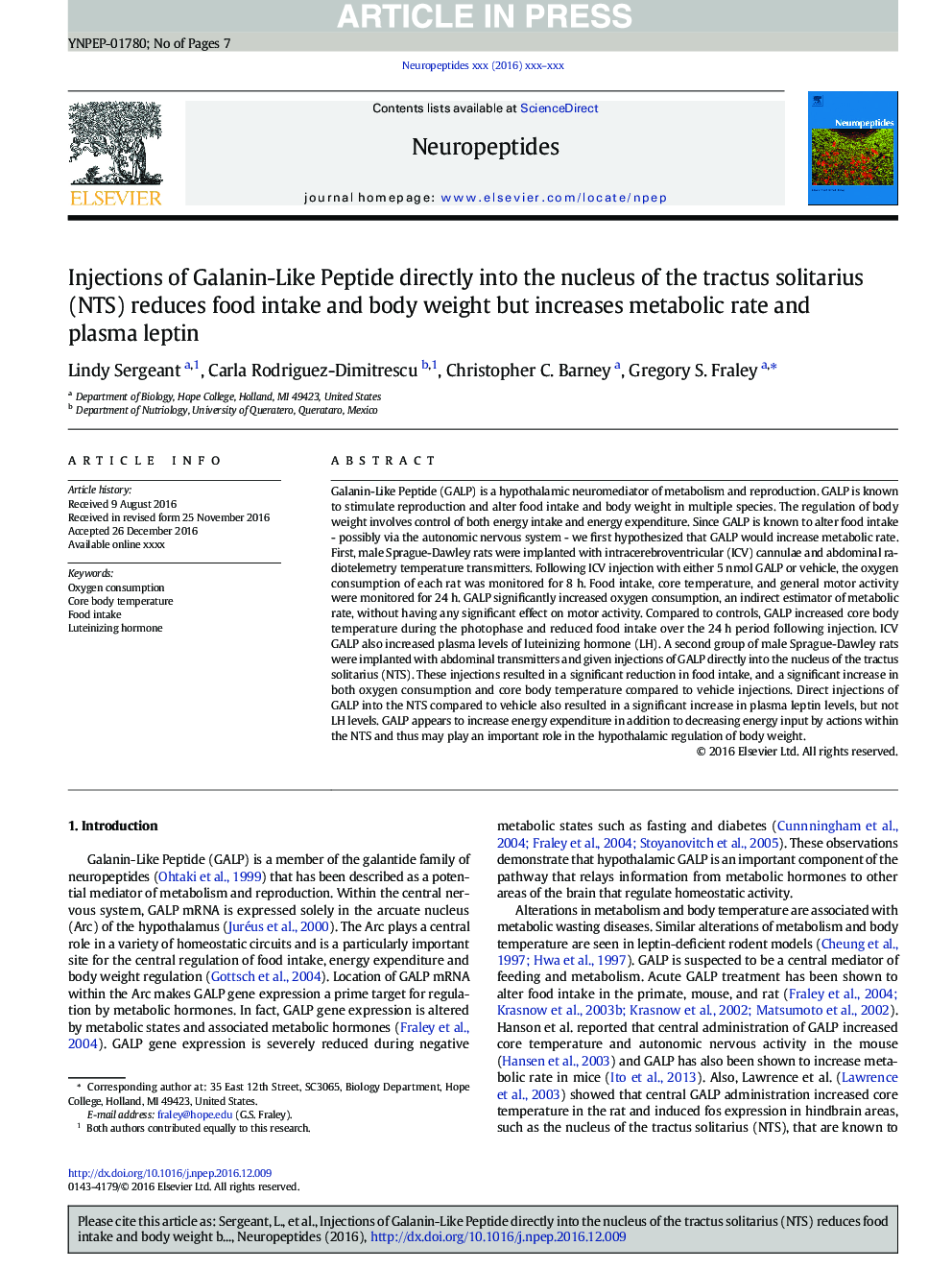| Article ID | Journal | Published Year | Pages | File Type |
|---|---|---|---|---|
| 8633716 | Neuropeptides | 2017 | 7 Pages |
Abstract
Galanin-Like Peptide (GALP) is a hypothalamic neuromediator of metabolism and reproduction. GALP is known to stimulate reproduction and alter food intake and body weight in multiple species. The regulation of body weight involves control of both energy intake and energy expenditure. Since GALP is known to alter food intake - possibly via the autonomic nervous system - we first hypothesized that GALP would increase metabolic rate. First, male Sprague-Dawley rats were implanted with intracerebroventricular (ICV) cannulae and abdominal radiotelemetry temperature transmitters. Following ICV injection with either 5Â nmol GALP or vehicle, the oxygen consumption of each rat was monitored for 8Â h. Food intake, core temperature, and general motor activity were monitored for 24Â h. GALP significantly increased oxygen consumption, an indirect estimator of metabolic rate, without having any significant effect on motor activity. Compared to controls, GALP increased core body temperature during the photophase and reduced food intake over the 24Â h period following injection. ICV GALP also increased plasma levels of luteinizing hormone (LH). A second group of male Sprague-Dawley rats were implanted with abdominal transmitters and given injections of GALP directly into the nucleus of the tractus solitarius (NTS). These injections resulted in a significant reduction in food intake, and a significant increase in both oxygen consumption and core body temperature compared to vehicle injections. Direct injections of GALP into the NTS compared to vehicle also resulted in a significant increase in plasma leptin levels, but not LH levels. GALP appears to increase energy expenditure in addition to decreasing energy input by actions within the NTS and thus may play an important role in the hypothalamic regulation of body weight.
Related Topics
Life Sciences
Biochemistry, Genetics and Molecular Biology
Endocrinology
Authors
Lindy Sergeant, Carla Rodriguez-Dimitrescu, Christopher C. Barney, Gregory S. Fraley,
